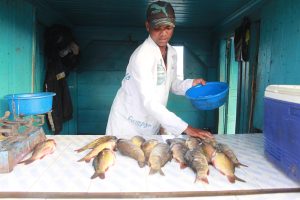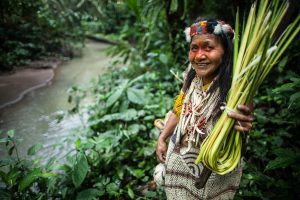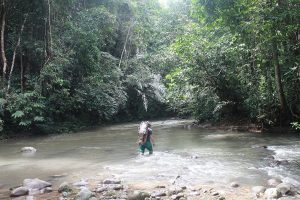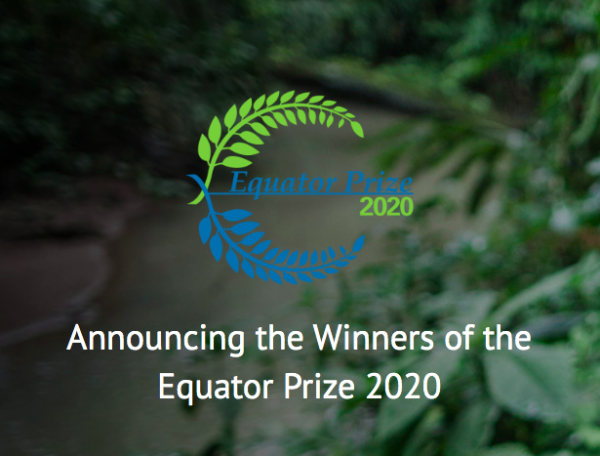First published on 06/05/2020, and last updated on 07/08/2020
By Holly Jonas, ICCA Consortium Global Coordinator.
Out of nearly 600 nominations, 10 Indigenous and community initiatives were announced as the latest winners of one of the most prestigious awards for grassroots community initiatives. The biennial Equator Prize (organised by the Equator Initiative within the United Nations Development Programme) recognises outstanding community efforts to reduce economic poverty through the conservation and sustainable use of biodiversity.
We are thrilled to share that five of the 10 winners this year are affiliated with our membership! We celebrate their deep commitment to their communities and collective territories of life and hope that this international recognition will contribute to their ongoing self-strengthening and advocacy efforts.
Learn more about the Equator Prize winners affiliated with our membership:
The Salween Peace Park
The Salween Peace Park is a 5400-km2 expression of Indigenous Karen identity in Burma/Myanmar, founded upon principles of peace, self-determination, ecological integrity and cultural survival. The Salween Peace Park is closely supported by the Karen Environmental and Social Action Network (KESAN, ICCA Consortium Member). Paul Sein Twa, President of the Salween Peace Park and Director of KESAN, is also a Council member of the ICCA Consortium.
Vondron’Olona Ifotony Tatamo Miray an’Andranobe (VOI TAMIA)

© via Equator Initiative.
Vondron’Olona Ifotony Tatamo Miray an’Andranobe (VOI TAMIA) is a community-based organisation in central Madagascar that has restored the 90-hectare Andranobe Lake, which provides the basis of local fishing and agriculture livelihoods. VOI TAMIA is a founding member of TAFO MIHAAVO (ICCA Consortium Member), a national network of fokonolona or community systems of natural resource governance and management.
Łutsël K’é Dene First Nation
After 40 years of advocacy, the Łutsël K’é Dene First Nation achieved the vision of taking care of their land and waters for future generations by signing agreements with national and territorial governments to officially establish Thaidene Nëné (Land of the Ancestors), a 26,000-km2 protected area between the Canadian boreal forest and the arctic tundra. ICCA Consortium Honorary member Steven Nitah has played an important role in the negotiation process over several years.
Alianza Ceibo

© via Equator Initiative.
Alianza Ceibo unites the Kofán, Siona, Secoya and Waorani in their struggle to counter environmental degradation to protect over 20,000-km2 of primary rainforest in the Ecuadorian Amazon. In one of the world’s most biodiverse ecosystems, this Indigenous-led alliance provides alternatives to extractive industries, ranching and large-scale monocultures through community documentation and communication, livelihood activities, community patrols and monitoring, advocacy and legal support. Alianza Ceibo collaborates with ICCA Consortium Members in Ecuador in national networks and advocacy efforts.
Forum Musyawarah Masyarakat Adat Taman Nasional Kayan Mentarang

© via Equator Initiative.
Forum Musyawarah Masyarakat Adat Taman Nasional Kayan Mentarang (Alliance of the Indigenous Peoples of the Kayan Mentarang National Park, FoMMA) advocates for the rights of Indigenous communities in 20,000-km2 of customary land in Northern Kalimantan, Indonesian Borneo. Kayan Mentarang National Park, the first park in Indonesia to be placed under a collaborative management arrangement, overlaps a large portion of their ancestral lands. In 2019, FoMMA secured legal recognition for a first block of 2,500-km2 of customary lands under national law. FoMMA is a long-term partner of members of the Working Group on ICCAs in Indonesia.
